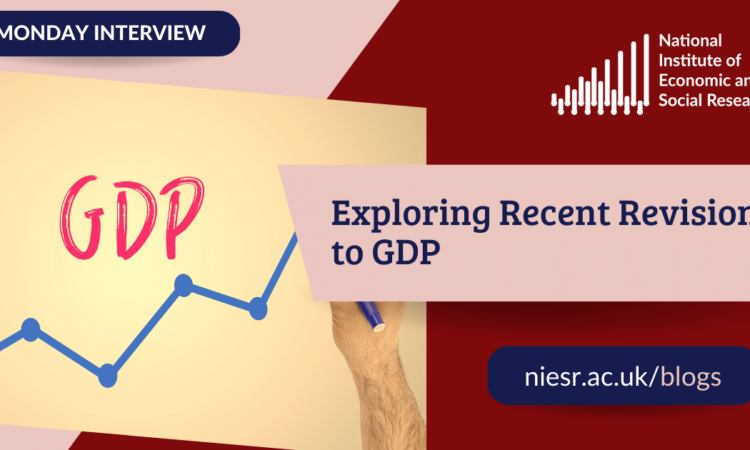
Why do revisions to GDP statistics take place?
GDP involves putting together a lot of information from different sources: from business surveys to tax returns. Some of the information only comes in after a considerable time: for example, income tax returns for year 2022/3 will not all be in until January 2024 whilst corporate tax can be 9 months after the end of the companies tax-year.
Once all of the data is in, there is a process of “balancing” the estimates so that income, output and expenditure are consistent. This is what happens in the Blue Books, and also involves the detailed and technical process of using input-output tables to separate out the value added for each sector from the total revenue.
The whole process of reviewing GDP estimates normally takes at least 3 years, at which time you get reasonable accurate figures. However, changes may take place later on, particularly if there is a change in methodology. For example, the 2014 Blue Book included several changes, including the introduction of narcotics and prostitution into GDP. These changes collectively increased GDP by around 4 per cent and were applied to data going back into the 1990s.
What factors were behind the recent revisions of GDP?
The Blue Book for 2023 includes a range of changes, largely methodological. These will be applied to GDP going back to 1997. Some years saw a slight increase, some a decrease although on average the revision was not much different to zero.
However, there have been relatively large changes in recent quarters: 2020 Q2 (the first lockdown) has been revised up by 0.5 percentage points (pp) and 2021 Q2 up by 1.1 pp. The overall effect is that if we compare 2019 Q4 with 2021 Q4, the previous drop in output of 1.2pp has become an increase of 0.6 pp.
The main drivers of the change were the interaction of two factors: “double deflation” has been applied, meaning that intermediate inputs such as energy have their own deflator rather than using the same deflator as the output, secondly the big changes in shares of output during the pandemic which affected the input-output structure that has taken time to catch up with.
Have revisions on this scale happened before?
Yes, we have already seen the impact of changes introduced in 2014. GDP is not like inflation, where you can get a pretty accurate snapshot each month. It is revised as new information becomes available and the methodology develops over time The revisions can be large and the current revisions are not as dramatic as some have been in the past. And, of course, we have not seen the end of this for 2020-2022: there will be future revisions as the methodology changes.
Part of the reason for this is that there is constant pressure from markets and policy makers to get more timely figures (hence the recent introduction of monthly GDP figures). These will inevitably be more inaccurate since monthly GDP figures are of their essence based on partial information. As new information becomes available revisions take place.
Does this revision fundamentally change how we think the UK economy is performing relative to other countries?
Even after the revisions, the UK economy is still only 0.6 per cent above the pre-pandemic level, which is not a great performance by any metric.
Given that this revision process is done at different speeds in different countries, we should always be a little bit careful about international comparisons so soon after the event. However, if we compare ourselves with Germany, we are about the same in terms of the level of current GDP relative to pre-pandemic. However, Germany has been hit much more by the fallout of the Russo-Ukrainian war and is already in recession. France has done slightly better, but again it has been hit harder by the war.
The US in contrast has seen relatively high growth from the base of 2019Q4, with current real GDP 6% higher. This is partly due to more expansionary fiscal policy and the fact that the effect of the war on the US has been largely positive, both in terms of boosting military arms sales and in the expansion of LNG sales to Europe to replace Russian piped gas.
Does the revision make us better off?
No, not at all. It is purely a measurement issue. The economic activity in the UK has been the same however we measure it. It is not like an individual finding a £20 note behind the sofa cushions that they can then go out and spend. The UK is not producing one extra packet of shortbread or can of ginger beer.
Revisions are important in that we believe they make the measurement more accurate. However, the measurement does not alter the objective reality.
The measurements do however frame our perceived reality and in that sense, they feed into policy debates and the effectiveness or otherwise of government policies. However, these debates we can leave to the media and politicians.






